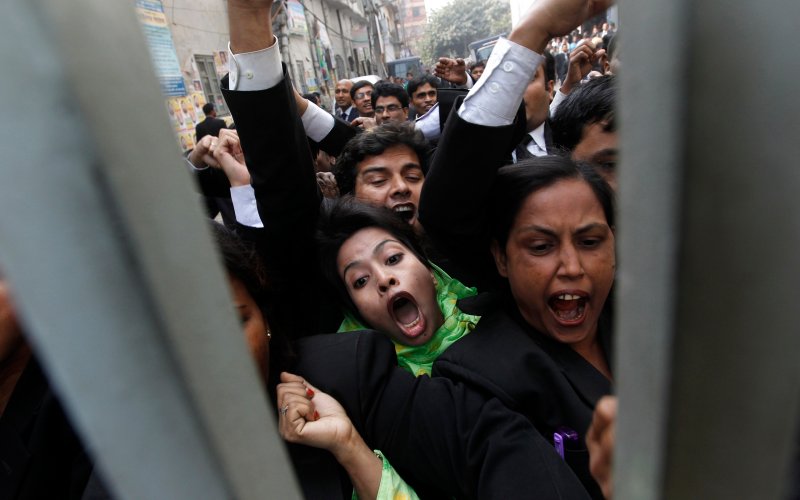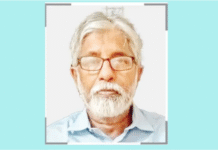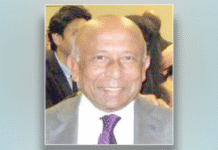
Official numbers from the January 5th elections places voter turnout low, at around 22 percent with over 400 polling stations across the country closing after several rural centers were set on fire. Almost 20 people died in political violence leading up to the polls. The elections, largely condemned by the international community, (the U.S. and European Union refused to even send election monitors), was boycotted by the BNP and its 17 allies, which includes the Islamic party Jamaat-e-Islami, who were banned from even participating.
Out of almost 92 million eligible voters, 48.3 million were not able to vote, and the outcome left the ruling Awami League with 77 percent of the seats in Parliament. Prime Minister Sheikh Hasina labeled the elections a victory for democracy, stating that there is no question about the credibility of the polls. But the rest of the world begs to differ, recognizing that Bangladesh’s “slide towards autocracy” will taint Hasina’s political legacy.
The mood in Dhaka is, frankly, depressing. Bangladeshis spent the past year watching the political rivalry between Hasina and Khaleda escalate to previously unseen levels of violence, with consistent general strikes crippling Bangladesh’s burgeoning economy. Members of the Opposition targeted civilians and killed almost 100 people just in the last few weeks leading up to the election which crowned Sheikh Hasina as Dhaka’s new absolute leader.
It is no longer just about two women fighting for the soul of Bangladesh, but a clash of ideologies that has left the country bitterly divided.
Three days after the polls, there is an air of silence in Bangladesh that one may experience at a funeral. In many ways, Bangladeshis are mourning the death of their democracy after an election that basically stripped the people of their most basic democratic right to vote. Even the most ordinary citizen can feel that this election did not allow them to cast a ballot.
I recently spoke with a veteran Bangladeshi politician, talking with me on condition of anonymity, who stated that despite widespread international criticism of the elections there was no alternative but to hold elections because it is stipulated in the country’s constitution.
“Some suggest Sheikh Hasina should step down as Prime Minister, but they do not have recommendations for who should replace her,” he points out. “People are dismissing the fact that the BNP has an alliance with Jamaat-e-Islaami, a terrorist party that the Awami League banned with good reason. One also must not forget that Bangladesh’s neighbor India is a major regional player with a huge stake in Dhaka’s political developments. India, who shares her borders on one side with Pakistan, and the other with Bangladesh, simply cannot afford to have two Islamist-leaning neighbors.”
Growing up in Dhaka, I knew my country’s political landscape was split into two: You either sided with Sheikh Hasina’s Awami League or Khaleda Zia’s BNP. But 2014’s election changed the playing field. It is no longer just about two women fighting for the soul of Bangladesh, but a clash of ideologies that has left the country bitterly divided.
So will a country with one of the world’s largest Muslim populations, and mainly moderate democracies, survive? Or will Bangladesh’s democracy dissolve before our eyes, transforming into an autocracy? The future is uncertain for Bangladesh as she begins the new year in a political abyss.
Source: The Daily Beast










